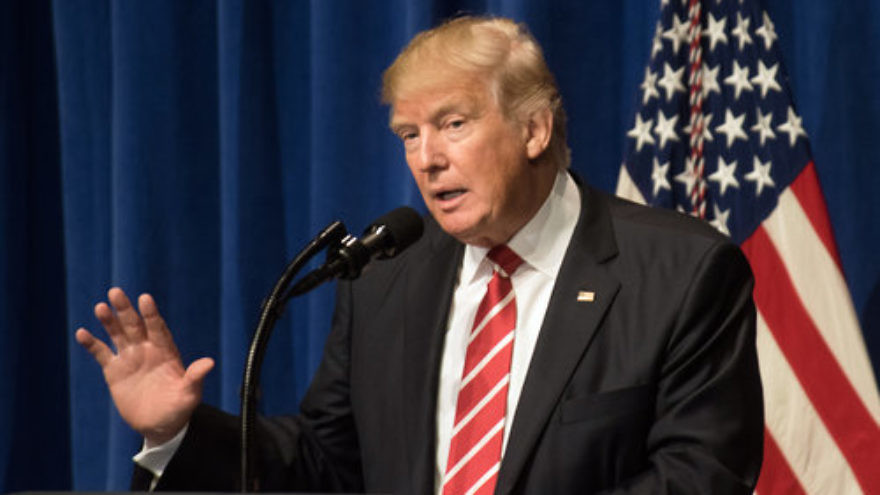Amid increasing tensions between the United States and Iran, U.S. President Donald Trump warned on Monday that Tehran will “suffer greatly” if “they do anything.”
“We’ll see what happens with Iran. … If they do anything, they will suffer greatly,” Trump told reporters in the Oval Office in response to reports that two oil tankers owned by Saudi Arabia and two others, one owned by the United Arab Emirates and another by Norway, were sabotaged, possibly by Tehran.
The president did not elaborate on the threat, saying, “You can figure it out yourself. They know what I mean by it.”
Trump’s warning came as the Washington has increased pressure on Tehran over the past week with new sanctions and deploying two warships with fighter jets, in addition to a Patriot missile battery, to the Gulf in response to Pentagon reports that Iran’s Islamic Revolutionary Guard Corps was planning an attack on U.S. forces or interests in the region—moves that have caused European foreign ministers to call for de-escalation.
“We are very worried about the risk of a conflict happening by accident with an escalation that is unintended really on either side, but ends with some kind of conflict,” said British Foreign Secretary Jeremy Hunt on Monday. “What we need is a period of calm to make sure that everyone understands what the other side is thinking.”
For his part, Trump said on Thursday, “What [Iran] should be doing is calling me up, sitting down, and we can make a deal. A fair deal. We just don’t want them to have nuclear weapons; it’s not too much to ask. And we would help put them back into great shape. They’re in bad shape right now. I look forward to the day when we can actually help Iran. We’re not looking to hurt Iran. I want them to be strong, and great, and have a great economy.”
However, the Islamic Republic rejected Trump’s call.
“The Americans know that no other war will bring about their defeat to such an extent and that’s why there won’t be a war because war is not part of the U.S. strategy,” said Heshmatollah Falahatpisheh, the head of Iran’s parliamentary commission for national security and foreign affairs, reported the Islamic Students’ News Agency. “Nobody is going to call Trump, and eventually, the Americans will be forced to raise the issue of negotiations with Iran in a serious way.”
U.S. Secretary of State Mike Pompeo traveled to Brussels on Monday, and “shared information and intelligence with allies and discussed the multiple plot vectors emerging from Iran,” U.S. Special Representative for Iran Brian Hook told reporters. That included meeting with NATO Secretary-General Jens Stoltenberg. Discussions included the alleged attacks on the oil tankers.

























